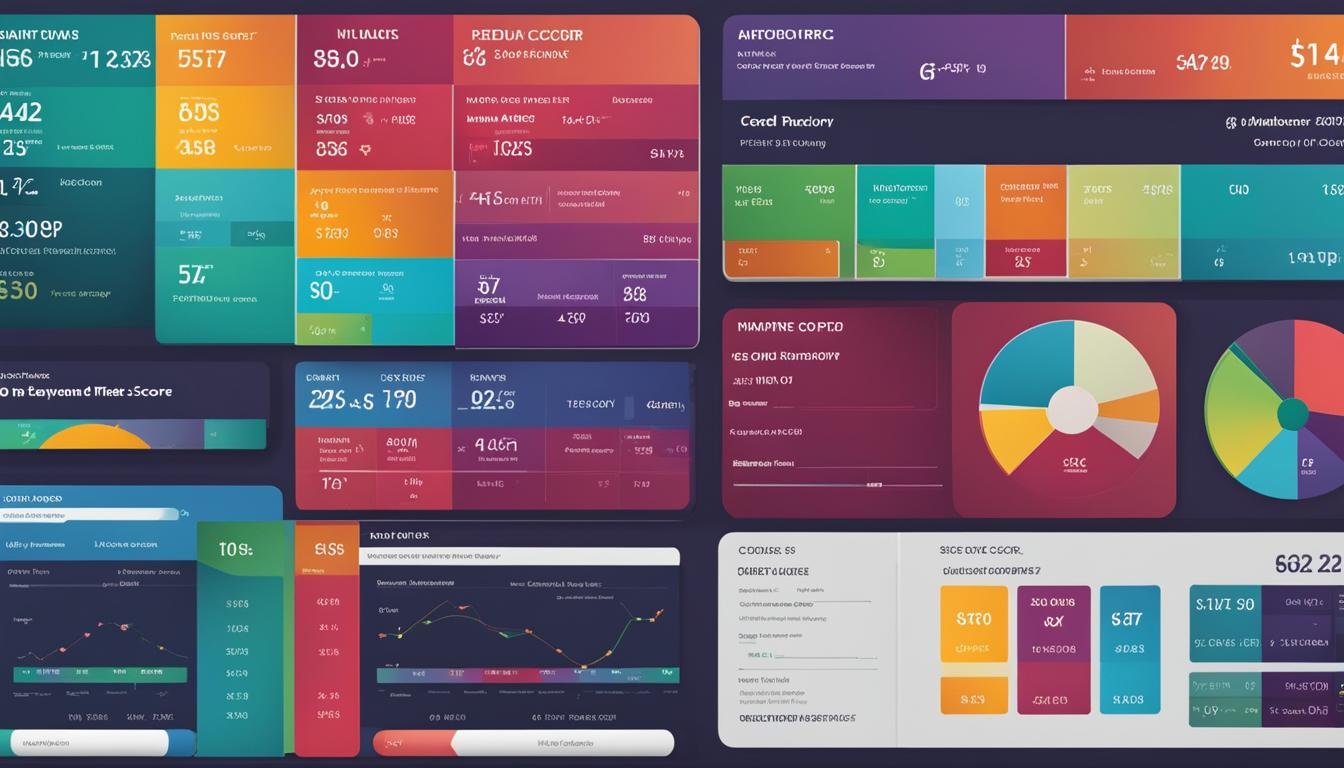Greetings! As someone who has managed their finances and made financial decisions, I understand the importance of credit scores. These three-digit numbers have a significant impact on our financial well-being, as they provide lenders and institutions with a snapshot of our creditworthiness based on our credit history.
When it comes to credit scores, it’s crucial to grasp how they are calculated and the influence they have on various aspects of our lives.
Key Takeaways:
- Credit scores are three-digit numbers that reflect an individual’s creditworthiness.
- A good credit score falls within the range of 670 or above on a scale of 300 to 850.
- Understanding credit scores is essential to comprehend their impact on loan eligibility, insurance premiums, and even rental applications.
- Knowing the factors that affect credit scores and implementing strategies to improve them can lead to better financial opportunities.
- Regularly checking credit scores and credit reports is vital to ensure accuracy and protect one’s credit standing.
Factors Affecting Credit Scores and Strategies to Improve Them
To have a better understanding of credit scores and how to improve them, it’s essential to be aware of the factors that influence them. Several key elements can directly impact your credit scores:
- Payment History: Timely payments demonstrate financial responsibility and positively affect your credit scores.
- Credit Usage: The amount of credit you utilize compared to your available credit limit can impact your scores. Keeping your credit utilization below 30% is generally recommended.
- Length of Credit History: The longer your credit history, the more data lenders have to assess your creditworthiness.
- Types of Accounts: A diverse mix of credit accounts, such as credit cards, loans, and mortgages, can enhance your credit scores.
- Recent Activity: Frequent credit applications and opening new accounts within a short period may adversely impact your credit scores.
To improve your credit scores, consider implementing the following strategies:
- Make on-time payments: Consistently paying bills by their due date demonstrates reliability to lenders.
- Manage credit utilization: Keep your credit card balances low and aim to pay off debts as much as possible.
- Maintain a diverse credit mix: Having a variety of credit accounts can contribute positively to your credit scores.
- Avoid excessive credit applications: Too many credit inquiries can raise concerns about your financial stability.
- Dispute inaccurate credit information: Regularly review your credit reports and address any errors or discrepancies promptly.
By focusing on these factors and implementing these strategies, you can take meaningful steps to improve your credit scores.
The Importance of Credit Scores and their Influence on Various Aspects of Life
Credit scores have become a vital component of our financial lives, with repercussions that extend beyond just our ability to borrow money. Whether you’re looking to get a credit card, secure a loan, rent an apartment, purchase a car, or even apply for insurance, having a good credit score plays a pivotal role in determining your eligibility for these opportunities.
Lenders, landlords, insurance companies, and potential employers often consider credit scores when making decisions that can have a significant impact on your life. A high credit score not only increases your chances of approval but also opens doors to better loan terms, lower interest rates, and more favorable borrowing options. It can essentially save you thousands of dollars over time.
To safeguard your financial well-being, it is crucial to regularly check your credit scores and credit reports. By doing so, you can identify any errors or inaccuracies that may be negatively impacting your credit standing. Additionally, monitoring your credit helps you stay vigilant against fraud and take immediate action to protect yourself if any suspicious activity occurs.
Improving your credit score is also a worthwhile endeavor. By implementing smart financial habits such as paying bills on time, keeping credit utilization low, and maintaining a diverse credit mix, you can gradually elevate your creditworthiness and gain access to more opportunities in the long run.




